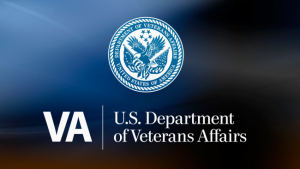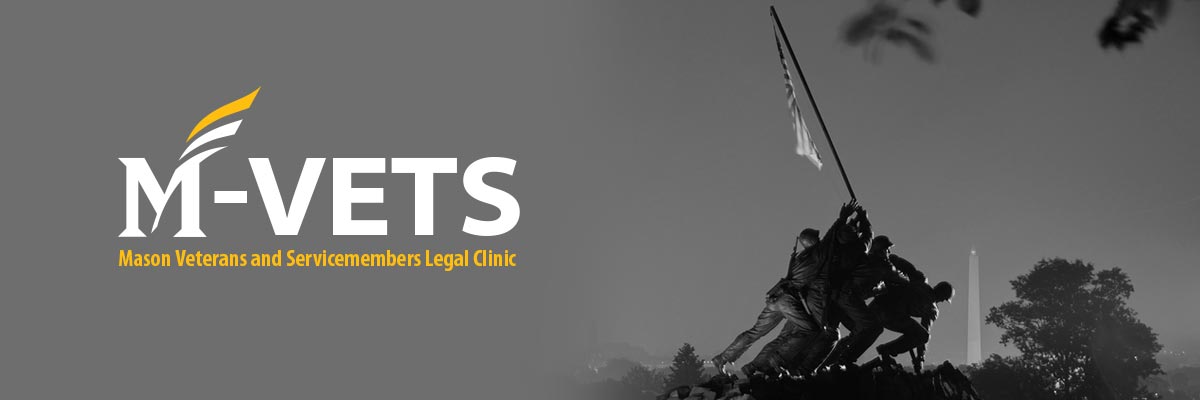
By Spring 2017 M-VETS Student-Advisor Larry Lohmann
Last month President Trump signed the Veterans Choice Improvement Act, an extension of the Veterans Access, Choice, and Accountability Act of 2014 or Veterans Choice Act. The Act, originally passed and implemented during the Obama administration, requires hospital care and medical services to be furnished to veterans through agreements with specified non-Department of Veterans Affairs (VA) facilities if the veterans do not live close to VA medical facilities. The president signed the bill to extend the Choice program, which had a sun-setting provision set to expire on Aug. 7, and allow the expenditure of the remaining $950 million in the program.
Under the original Veterans Choice Act Congress made services available to Veterans that had been unable to schedule an appointment at a VA medical facility within the Veterans Health Administration’s (VHA’s) wait-time goals for hospital care or medical services. The original Choice Card program allowed Veterans facing extensive wait times at Veterans Administration facilities or living more than 40 miles from the nearest VA to seek care in the private sector.
Seeking to further extend care for Veterans, Rep. Phil Roe, Chairman of the House Veterans Affairs Committee, stated in February of the bill, “If you feel that you’re not getting the care at the VA hospital, you should have a choice to go where you want to. I want you to have the absolute best health care that can be provided by anybody in the world. You should have that as a veteran.” In that vein, Veterans already participating in the program will not need to re-apply under the new bill the president signed last month and using this program does not impact existing VA health care, or any other VA benefit. Veterans participating in Veterans Choice Program will continue to receive care from providers in their community.
Perhaps the most important change that comes with the new Veterans Choice Act is it directs the VA to cover co-pays and deductibles directly for private care rather than reimbursing veterans for paying up front. Previously, some community providers had to bill the Veterans’ private health insurance and Veterans Choice Programs separately with Veterans paying out of pocket for services. This implementation addresses a major complaint that was voiced by Veterans service organizations, such as the American Legion. In addition to directing the VA to cover co-pays and deductibles, the new Act is supposed to untangle the web of multiple community-care programs and streamline access for veterans across this country.
In the original version of the Veterans Choice Act the VA had a restriction different from other health-care providers regarding the exchange of health information. This law removes these restrictions and ensures that community providers have access to appropriate health information for Veterans, and brings VA in line with other health-care providers and federal standards related to the exchange of health information. The VA is emphasizing that this new change does not create an exception to, or weaken the protections of the Health Insurance Portability and Accountability Act (HIPAA). This implementation should lead to improved quality of care for Veterans, as access to their medical records will be easily available to their local health care providers.
The extension of the Act is the one of the major legislative accomplishments of the Trump administration thus far and is one that has proven to have wide bi-partisan support. The bi-partisan support is evident with VA Secretary Dr. David Shulkin remaining in place as the head of Veterans healthcare administration. Shulkin, the only holdover in the Obama administration in the Trump Cabinet and the only cabinet member to win unanimous confirmation in the Senate, said at the signing ceremony that the Choice extension was a precursor of “the great things that are to come to fulfill the president’s commitments that he made to veterans.”
Shulkin’s comments are important because while this Act is an improvement from the previous version and an extension of it, it is far from a complete solution to all of the VA’s problems. Shulkin is slated to make proposals to Congress this fall to better integrate the VA with the private sector, overhaul the Choice program further, and to give veterans more options for private care. These proposals will be crucial to the future for VA services for many Veterans that use the Veterans Choice Program because the funds for the current program will likely be exhausted by January 2018.
Important Highlights made by the VA
- The law did not change eligibility for the VCP. Please refer to the VCP website for information regarding eligibility here: https://www.va.gov/opa/choiceact/
- The Choice law requires Veterans to provide VA with their private health insurance information in order to use the program. The new law means that Veterans will no longer be responsible for cost- shares/co-pays associated with their private health insurance. It also means community providers will no longer have to bill a Veteran’s private health insurance and the VCP; they will only have to bill the VCP.
- This law does not put any health insurance information at risk. Previously, VA had restrictions different from other health-care providers regarding the exchange of Veterans’ health information. This law removes those restrictions and ensures that community providers have access to appropriate health information for Veterans, and brings VA in line with other health providers and federal standards related to the exchange of health information.
- The law allows VA to use the remaining funds available for the VCP. VA has partnered with Congress to work though remaining legislative needs to build a single, community care program. This law makes meaningful improvements for the VCP, but more needs to be done. The law is a bridge to allow VA time to partner with Congress and all of its stakeholders to create one community care program that is simple to administer, easy to understand and meets the needs of Veterans and their families, community providers and VA staff.
Sources
Public Law No: 113-146, H.R.3230, Veterans Access, Choice, and Accountability Act of 2014 – Title I: Improvement of Access to Care from Non-Department of Veterans Affairs Providers (08/07/2014) available at https://www.congress.gov/bill/113th-congress/house-bill/3230
Public Law No: 115-26, S.544, A bill to amend the Veterans Access, Choice, and Accountability Act of 2014 to modify the termination date for the Veterans Choice Program, and for other purposes. (04/19/2017) available at https://www.congress.gov/bill/113th-congress/house-bill/3230
Steve Brooks, Privatization, Choice Program hot topics during Commander’s Call, February 28, 2017, available at https://www.legion.org/washingtonconference/236354/privatization-choice-program-hot-topics-during-commanders-call
Richard Sisk, Trump Signs Bill to Extend Veterans Choice Program, April 19, 2017, available at http://www.military.com/daily-news/2017/04/19/trump-signs-bill-extend-veterans-choice-program.html
Veterans Choice Program Law changes fact sheet APRIL 19, 2017, Available at https://www.va.gov/opa/choiceact/documents/Choice%20Extension%20Fact%20Sheet%20FINAL%20April%202017_508.pdf
